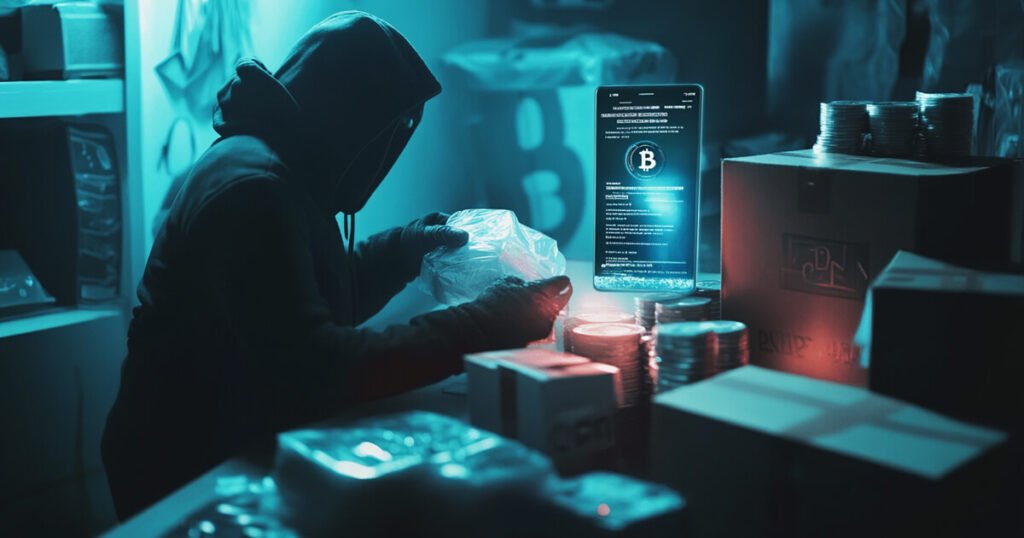The Resilience of Telegram-Based Dark Markets After Huione Guarantee’s Closure
On May 13th, a significant event shook the dark web: the $27 billion marketplace, Huione Guarantee, vanished, leaving many in the online fraud ecosystem scrambling for alternatives. A recent report by Elliptic on June 23 highlights that Telegram-based dark markets quickly filled the void. As researchers began tracing fraudulent activities linked to Huione Guarantee, Telegram responded by banning thousands of its channels and usernames. This reaction, however, didn’t end the dark market transactions; it merely shifted them.
Rapid Transition to Rival Platforms
In the aftermath of the Huione Guarantee shutdown, merchants didn’t hesitate to migrate to rival platforms. Data from Elliptic indicates that many users quickly gravitated towards Tudou Guarantee, a competing market in which Huione itself owned a 30% stake. The on-chain data revealed an immediate decline in USDT transactions at Huione, dropping to near-zero levels, while Tudou experienced a dramatic growth in user count. It has even been reported that inflows to Tudou matched Huione’s transaction volumes right before its shutdown. This swift transition underscores the adaptability of dark market operators, who continue to thrive under changing circumstances.
Characteristics of Guarantee Markets
Telegram dark markets operate primarily in the Chinese language and utilize USDT for transactions, offering a broad range of services including stolen data, money laundering services, and other resources needed for extensive online fraud. The escrow model is a significant component of this ecosystem, allowing buyers and sellers to engage without revealing their identities, thereby fostering a sense of security for illicit transactions. Moreover, Tether’s dollar peg helps in mitigating local currency volatility, making USDT a preferred medium of exchange in these marketplaces.
Distinction Between Huione Guarantee and Huione Pay
It’s essential to differentiate between Huione Guarantee and Huione Pay—a Cambodia-based payment processing company that continues to manage significant USDT volumes. Despite the controversies surrounding Huione Group, which triggers concerns about money laundering, Huione Pay has remained operational. Elliptic’s analysis illustrated that Huione Pay’s activities persisted even after regulatory scrutiny intensified, showcasing a clear line between the dark market and legitimate financial services.
The Rise of New Players in the Dark Market
Elliptic’s report observes that more than 30 active Guarantee markets have emerged following the Huione Guarantee collapse. This new wave includes both established and smaller competitors that have emerged to cater to the growing demand. However, the market is rife with risks; the report cautions inexperienced criminal operators about the existence of fraudulent venues aiming to exploit them. As vendors replicate listings across platforms, the landscape of dark markets remains highly competitive and dynamic.
Sustainability of the Dark Market Ecosystem
The closure of Huione Guarantee undoubtedly sent shockwaves through the intricate network of scammers, intermediaries, and brokers predominantly found in Southeast Asia and China. Nevertheless, Elliptic’s data suggests that the overall trading volume within these guarantee markets did not experience a long-term decline; instead, liquidity quickly migrated to alternate channels. The report concludes that only coordinated and sustained actions can disrupt this resilient ecosystem, which has demonstrated an impressive ability to adapt to channel bans and regulatory hurdles.
In summary, the abrupt disappearance of Huione Guarantee highlighted the turbulent yet relentless nature of Telegram-based dark markets. As the ecosystem evolves, it continues to pose substantial challenges to law enforcement and regulatory agencies aiming to combat online fraud. With new platforms like Tudou Guarantee stepping up to fill the gaps, the illicit market is more robust than ever, reminding us of the challenges inherent in curbing organized cybercrime.


